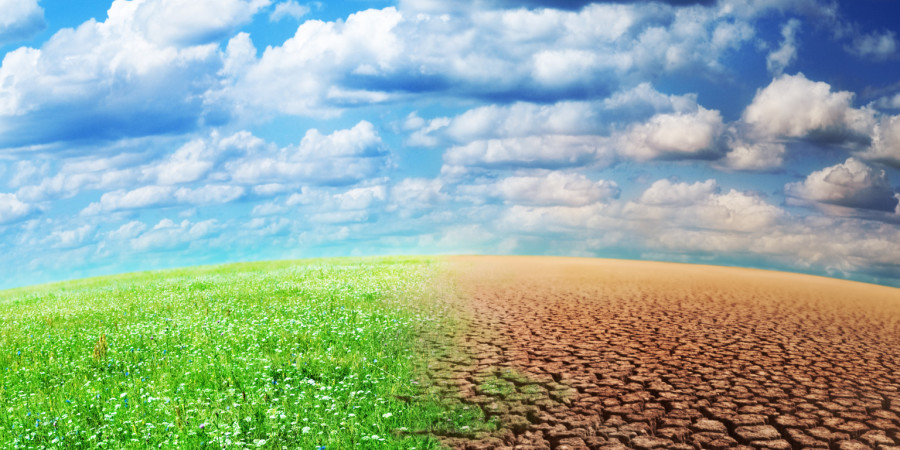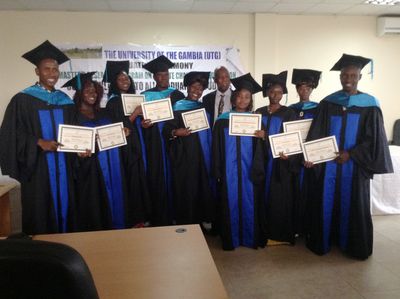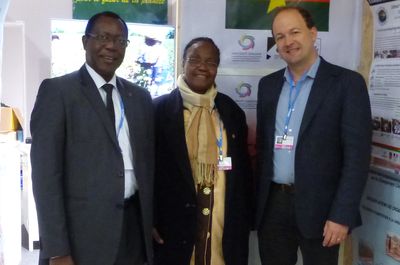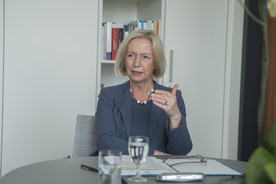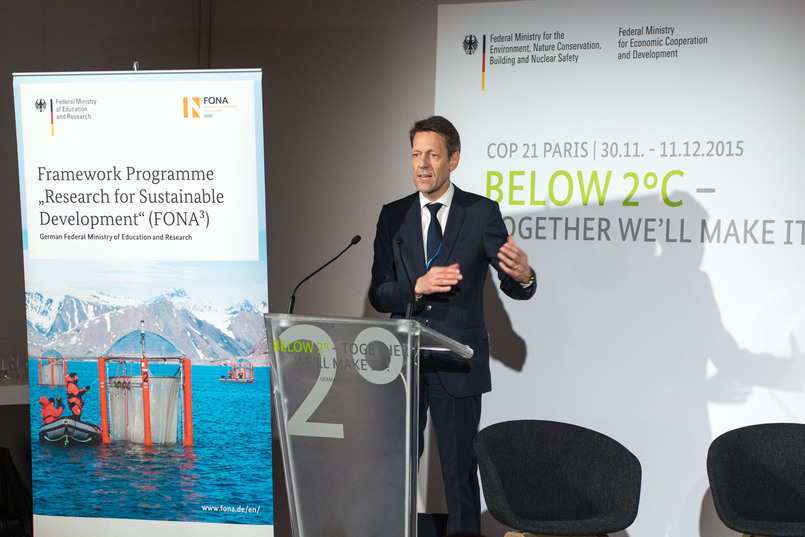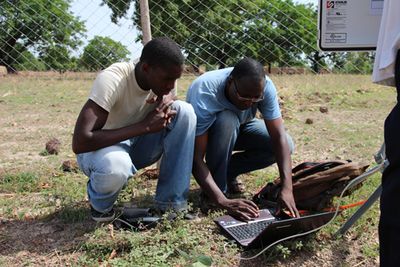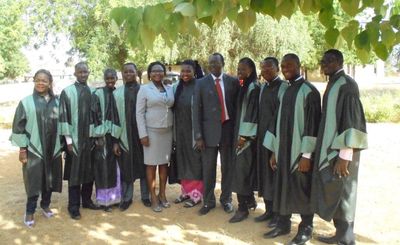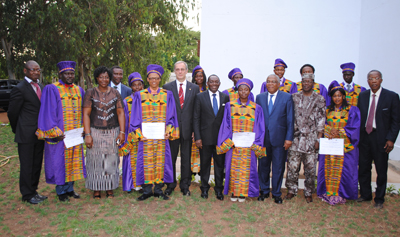Dans le but de remplir sa mission en tant que centre régional de services sur le changement climatique, l’ambition de WASCAL est de mettre en place un programme de recherche cohérent qui répond aux besoins des populations de l’Afrique de l’Ouest.
Dans le but de remplir sa mission en tant que centre régional de services sur le changement climatique, l’ambition de WASCAL est de mettre en place un programme de recherche cohérent qui répond aux besoins des populations de l’Afrique de l’Ouest. Pour cette raison, il est prévu de tenir des consultations nationales et régionales sur son Programme de Recherche de la période 2016-2020.
WASCAL (West African Science Service Center on Climate Change and Adapted Land) ou (Centre Ouest-Africain de Service Scientifique sur le Changement Climatique et l’Utilisation Adaptée des Terres) est un programme de recherche, conçu pour répondre au défi du changement et de la variabilité croissante du climat et accroitre la résilience des systèmes humains et environnementaux.
D’après le communiqué qui nous est parvenu, pour s’assurer que les besoins de tous les acteurs à différents niveaux de la communauté sont bien pris en compte, les consultations nationales seront organisées dans tous les Etats membres de WASCAL sur le Programme de Recherche 2016-2020.
Les consultations nationales ont pour objectifs spécifiques :
– Identifier dans chaque pays les problèmes liés au changement climatique et les besoins de recherche correspondants.
– Analyser la couverture des besoins de recherche du pays par le programme de recherche de WASCAL.
– Évaluer les capacités nationales de recherche en relation avec le changement climatique.
– Déterminer la contribution potentielle du pays pour la mise en œuvre du Programme de Recherche de WASCAL.
Selon le communiqué, elles déboucheront sur l’identification et l’évaluation de scénarios d’adaptation pertinents, l’évaluation des programmes d’investissements y afférents et des ressources techniques et financières nécessaires à leur mise en œuvre.
Dans cette perspective, les contributions des chercheurs, des décideurs du public comme du privé, de la société civile et de toute autre partie prenante, sont particulièrement encouragées.
Mots clés A la une, changements climatiques, Consultations sur le programme WASCAL, ucad
Nine students graduated successfully at the WASCAL Master Research Program “Climate Change and Education” at the University of the Gambia. In the picture: The graduates at the celebration ceremony on December 2, 2015.
The two-year Master’s Research Program on Climate Change and Education in the Gambia builds climate change expertise of students from the ten West African WASCAL countries in an inspiring, multi-disciplinary and intercultural learning environment.
Each year, ten to twenty students are admitted to the program, which has a focus on developing skills in communication, education and public relations. These skills are highly relevant for policy-advice, public awareness building on climate change, as well as for the implementation of adaptation programs.
In the picture, from left to right:
1. Mamoudou BA
ASSESSMENT OF FARMERS’VULNERABILITY TO CLIMATE CHANGE IN THE NORTH BANK REGION, THE GAMBIA
2. Fatou BOJANG
AWARENESS OF VEGETABLE PRODUCER S ABOUT CLIMATE CHANGE AND THE LEVEL OF EXTENSION SERVICES PROVIDED IN LOWER REGION OF THE GAMBIA
3. Cynthia KUTIR
FARMERS’S AWARENESS AND RESPONSE TO CLIMATE CHANGE IN THE NORTH BANK REGION, THE GAMBIA
4. Abdoulaye BORE
FLOOD VULNERABILITY ASSESSMENT AND ADAPTATION RESPONSES: CASE STUDY OF BASSE, THE GAMBIA
5. Constantine A. A. KOUEVI
IMPACT OF DROUGHT ON LIVELIHOOD RELATED MIGRATION IN FOUR COMMUNITIES IN THE NORTH BANK REGION OF THE GAMBIA
6. Corine B. L. SINSIN
ECOSYSTEM-BASED ADAPTATION TO CLIMATE CHANGE THROUGH PRIORITIZATION OF CROP WILD RELATIVES: THE CASE OF THE GAMBIA
7. Afi KAVEGUE
IMPACTS OF FLOODING AND COPING MECHANISMS ON SCHOOL CHILDREN RESIDING IN EBO TOWN, KANIFING MUNICIPALITY, THE GAMBIA
8. Pauline ATTEMENE
SUSTAINABILITY-RELATED COMMUNICATION IN THE CONTEXT OF CLIMATE CHANGE: A CASE STUDY OF SELECTED GAMBIAN ECOTOURISM AREAS
9. Abdoul-Rasmane BAGAGNAN
FARMERS’PERCEPTIONS AND RESPONSE TO CLIMATE VARIABILITY IN THE CENTRAL RIVER REGION OF THE GAMBIA
Le Centre ouest africain de service scientifique sur le changement climatique et l’utilisation adaptée des Terres (WASCAL) démarre, lundi à 8h 30mn par le Sénégal, des consultations sur le changement climatique, annonce un communiqué parvenu à l’APS.
Laurent Sédogo, Janet Adelegan and Harald Kunstmann represented WASCAL at the COP 21 in Paris (Nov. 30-Dec.12, 2015). In the pictures: Laurent Sédogo and Janet Adelegan giving presentations at a COP21 side event organized by BMBF and WASCAL/SASSCAL and Laurent Sédogo and Harald Kunstmann in front of Burkina Faso’s national pavilion.
Press coverage: Harald Kunstmann was interviewed by the regional tv channel Bayerische Rundfunk, 11.12.2015 at 22:45h on the COP21: http://www.br.de/mediathek/video/sendungen/nachrichten/interview-kunstmann-klimagipfel-100.html#&time=
Bundesforschungsministerin Johanna Wanka im Interview über gerechte Regeln für den Klimaschutz, die Förderaktivitäten des Bundesforschungsministeriums und darüber, wie andere Staaten von der Energiewende in Deutschland profitieren können.
Welche Erwartungen haben Sie an die Pariser Klimakonferenz?
Wir alle sehen und erleben, dass der Klimawandel erste Folgen zeigt. Im Westen der USA herrscht Dürre, die Gletscher in den Alpen schmelzen. Die Eismassen an den Polen werden kleiner. Deshalb erwarte ich, dass sich alle Länder bereit erklären, ihren Treibhausgasausstoß zu verringern. Damit wird es aber nicht getan sein. Wir brauchen auch internationale Zusammenarbeit, wenn es um die Folgen des Klimawandels geht. In Paris müssen gerechte Regeln für Klimaschutz und Anpassung gefunden werden. Vor allem die ärmsten Länder der Welt sind häufig besonders stark von den Folgen des Klimawandels betroffen und benötigen Unterstützung. Das sind für mich die zentralen Punkte für Paris.
Was trägt die deutsche Forschung dazu bei?
Unsere Klimaforscher sind weltweit führend. Die Wissenschaft trägt dazu bei, zu verstehen, wie der Klimawandel entsteht und vor allem welche Folgen er hat. Jetzt geht es darum, auch Lösungsmöglichkeiten für die zu erwartenden Probleme zu finden. Also wie man auch mit deutlich weniger Kohle, Öl und Gas eine Industriegesellschaft sicher mit Energie versorgen kann.
Können Sie das konkretisieren?
Wichtig ist mir, dass die Ergebnisse der Forschung dort ankommen, wo die Entscheidungen zum Umgang mit dem Klimawandel getroffen werden. Das gilt in der nationalen und internationalen Klimapolitik. Aber auch für Stadtverwaltungen, Behörden und Unternehmen sowie für jeden einzelnen Bürger. Politik und Gesellschaft müssen in der Lage sein, rasch und flexibel auf die Herausforderungen des Klimawandels zu reagieren. Nötig sind Innovationen, die den Umbau zu einer klimafreundlichen Gesellschaft beschleunigen. Hierauf ist unser neues Rahmenprogramm „Forschung für nachhaltige Entwicklung“ ausgerichtet.
Wie nimmt Deutschland seine globale Verantwortung wahr?
Wir fördern viele Projekte, in denen Wissenschaftler aus Entwicklungs- und Schwellenländern gemeinsam mit deutschen Wissenschaftlern Strategien für die Bewältigung des Klimawandels entwickeln.
Ein Beispiel dafür sind unsere Kompetenzzentren für Klimawandel und angepasstes Landmanagement im südlichen und westlichen Afrika, SASSCAL und WASCAL. Afrika ist vom Klimawandel besonders betroffen und braucht belastbares Wissen, um die richtigen Entscheidungen etwa im Hinblick auf Landnutzung und Wasserversorgung treffen zu können. Von 2010 bis 2017 werden wir daher insgesamt bis zu 100 Millionen Euro in die Forschungsinfrastruktur und konkrete Forschungsprojekte mit afrikanischen Partnern investieren. So unterstützen wir auch die Ausbildung junger Wissenschaftlerinnen und Wissenschaftler. Wir wollen damit Perspektiven für den wissenschaftlichen Nachwuchs in deren Heimatländern schaffen. Die Programme sind deshalb langfristig ausgerichtet, um notwendige Kompetenzen vor Ort zu stärken.
Auch unsere Aktivitäten im Bereich nachhaltige Urbanisierung sind gute Beispiele. Bis zu 80 Prozent der weltweit genutzten Energie und Ressourcen wird in urbanen Räumen verbraucht, und mehr als Dreiviertel der globalen Emissionen werden dort erzeugt. Daher fördern wir in den Maßnahmen „Forschung für die nachhaltige Entwicklung der Megastädte von morgen“ und “Rapid Planing” seit vielen Jahren Ansätze, die die Emissionen mindern und schnell wachsende Städte widerstandsfähiger gegen die Folgen des Klimawandels machen sollen.
Deutschland plant die Energiewende. Was trägt die Wissenschaft dazu bei?
Die Energiewende ist ein Gemeinschaftsprojekt, und nur als solches wird sie gelingen. Deshalb werden wir nun die Wissenschaft systematisch mit der Wirtschaft und der Zivilgesellschaft zusammenbringen. Wir haben dazu eine neue Projektform entwickelt, die Kopernikus-Projekte. Die Kopernikus-Projekte sind unsere wichtigste Forschungsinitiative zur Energiewende. Allein der Name unterstreicht: Die vor uns liegende Aufgabe erfordert einen Paradigmenwechsel. Wir wollen eine neue Form der Zusammenarbeit aller Akteure, die die Energiewende möglich machen. Der Wissenschaft kommt hier zusätzlich die Verantwortung zu, eng mit der Wirtschaft zusammenzuarbeiten und die Zivilgesellschaft von Beginn an in die Projektentwicklung einzubinden, damit neue Energiesysteme von den Bürgerinnen und Bürgern auch angenommen werden.
Neu ist auch die langfristige Ausrichtung der Projekte. Die Kopernikus-Projekte sind insgesamt auf eine Laufzeit von bis zu zehn Jahren ausgelegt. Technische Entwicklungen aus den Projekten können damit aus der Laborphase herauskommen und im großen Maßstab getestet werden. Das ist in dieser Form einzigartig.
Was kann ein Erfolg der Energiewende international bewirken?
Bei der Energiewende geht es nicht nur darum, dem Klimawandel wirkungsvoll zu begegnen, sondern auch die Versorgungssicherheit zu akzeptablen Preisen zu gewährleisten. Wenn uns das gelingt, können andere Staaten davon profitieren und die Energiewende zu einem großen Exporterfolg werden. Sie könnte sich international als Leitbild für den Ausstieg aus der fossilen Energieerzeugung etablieren. Dafür müssen wir aber zunächst in Deutschland unsere Hausaufgaben erledigen und die Energiewende, auch zusammen mit unseren Nachbarstaaten, zum Erfolg führen. Erfolge verbreiten sich schnell. So können wir bei den wichtigen Industrienationen Impulse setzen.
Das Zwei-Grad-Ziel ist nur noch schwer zu erreichen. Benötigen wir ein realistischeres Ziel für den Klimaschutz?
Nein, das benötigen wir nicht. Die Wissenschaft hat mit den IPCC-Berichten eine eindeutige Botschaft ausgesendet: Wenn wir zügig und gemeinsam agieren, bleiben Klimaschutz und Anpassung bezahlbar und die meisten Klimafolgen voraussichtlich beherrschbar. Demnach ist es nicht die Frage, ob sondern wie wir die globale Erwärmung auf zwei Grad begrenzen können. Deutschland stellt sich der Verantwortung. In Paris müssen aber alle Länder aktiv in den Klimaschutz eingebunden werden.
Wir investieren in die Forschung, weil wir an die Zukunft glauben! Ich habe großes Vertrauen in die Innovationsfähigkeit unserer Gesellschaft und bin überzeugt, dass wir gemeinsam unsere Klimaziele erreichen werden.
Vom 30. November bis zum 11. Dezember 2015 wird in Paris beim 21. Klimagipfel (COP 21) ein modernes, gerechtes und zeitgemäßes Abkommen verhandelt, das alle Staaten zu Klimaschutzaktivitäten verpflichten soll. Die Ergebnisse des Weltklimarats IPCC zeigen, dass die globale Erwärmung zunimmt und Treiber ist vor allem der Mensch.
Zur weiteren Erforschung des Klimawandels sowie zur Entwicklung von Maßnahmen zum Klimaschutz und zur Anpassung an den Klimawandel, fördert das Bundesforschungsministerium (BMBF) in Deutschland und weltweit Klimaforschungsprojekte. Die BMBF-Klimaforschung legt dabei großen Wert auf Kooperation mit den Entscheidern und Betroffenen vor Ort.
Während der COP 21 in Paris finden drei Side-Events der BMBF-Klimaforschung statt. Interessierte sind herzlich eingeladen an diesen Veranstaltungen teilzunehmen.
BMBF Side Event „Science‐based Climate Policy: From Research to Decision Making
Datum: 3. Dezember 2015, 16:00 – 18:00 Uhr
Ort: Deutscher Pavillion, Halle 2b, Le Bourget, Conference Centre
Forschung ermöglicht die Bewertung von Risiken für Wirtschaft und Gesellschaft und unterstützt die Entscheidungsfindung auf allen Ebenen. Die Veranstaltung zeigte dabei die Auswirkungen von Unsicherheit mit Blick auf die wissenschaftlichen Grundlagen und die Risiken des zukünftigen Klimawandels bis zum gemeinsamen Generieren von Wissen zur Entscheidungsfindung. Dabei wurden die Highlights deutscher Klimaforschung präsentiert.
Dr. Karl Eugen Huthmacher, Leiter der Abteilung 7 „Zukunftsvorsorge – Forschung für Grundlagen und Nachhaltigkeit“, Bundesministerium für Bildung und Forschung (BMBF)
Prof. Hans‐Otto Pörtner, Alfred Wegener Institut (AWI), Ko-Vorsitzender der Arbeitsgruppe II des Weltklimarates (IPCC)
Dr. Grit Martinez, Ecologic Institute
Christoph Bals, Germanwatch
Prof. Ottmar Edenhofer, Potsdam-Institut für Klimafolgenforschung (PIK), Mercator Research Institute on Global Commons and Climate Change (MCC)
Zusammenfassung der Diskussion:
Karl Eugen Huthmacher, BMBF eröffnete die Diskussion zu den Herausforderungen an eine moderne Klimaforschung. Ottmar Edenhofer (IPCC Co-chair AR5 WG III) und Hans-Otto Pörtner (IPCC Co-Chair AR6 WG II) boten Einblicke in ihre Tätigkeiten an der Wissenschaft-Politik-Schnittstelle. Grit Martinez zeigte den Transfer von Klimawissen am Beispiel der BMBF-Fördermaßnahme Klimzug auf. Christoph Bals formulierte die Anforderungen an eine moderne Klimaforschung aus Sicht einer Entwicklungs- und Umweltorganisation, die sich für globale Gerechtigkeit und den Erhalt von Lebensgrundlagen einsetzt.
BMBF Side Event „Strengthening Africa’s Competence in Combating Climate Change – African‐German Cooperations in Education and Research”
Datum: 8. Dezember 2015, 18:00 – 20:00 Uhr
Ort: Deutscher Pavillion, Halle 2b, Le Bourget, Conference Centre
SASSCAL und WASCAL, die regionale Kompetenzzentren für Klimawandel und nachhaltiges Landmanagement im südlichen und westlichen Afrika, sind gemeinschaftliche Initiativen von 15 Ländern in West- und Südafrika. Gemeinsam mit Deutschland bilden sie ein starkes Partnernetzwerk für gemeinsame Forschung und den Aufbau von Kapazitäten sowie für Klimadienstleistungen und Infrastrukturentwicklung. Hochrangige deutsche und afrikanische Vertreter teilen ihre Erfahrungen und zeigen beispielhafte Innovationsmodelle für langfristige regionale Zusammenarbeit im Kampf gegen Klimawandel und für ein nachhaltiges Landmanagement.
Redner:
Dr. Georg Schütte, Staatssekretär Bundesministerium für Bildung und Forschung (BMBF) (Deutschland)
Prof. Francois Adébayo Abiola, Vizepremierminister von Benin, Vorsitzender des WASCAL-Ministerrats
Dr. Henry Mwima, Geschäftsführer SASSCAL (Namibia)
Prof. Norbert Jürgens, wissenschaftlicher Berater und Leiter des Koordinationsteams an der Universität Hamburg (Deutschland)
Dr. Laurent Sedogo, Geschäftsführer WASCAL (Ghana)
Prof. Janet Adelegan, Director of Capacity Building, WASCAL (Burkina Faso)
Side Event im Rahmen des BMBF-Förderschwerpunkts “Ökonomie des Klimawandels”, „The Economics of Climate Change: The Effect of Climate Policy on Innovation, Competitiveness and Employment”
Datum: 9. Dezember 2015, 10:30 – 12:00 Uhr
Ort: EU Pavillion, Raum Luxembourg, Halle 2b, Le Bourget, Conference Centre
Weitere Informationen: www.zew.de/en/veranstaltungen/2228
BMBF und das Zentrum für Europäische Wirtschaftspolitik organisieren gemeinsam ein Side Event auf der Weltklimakonferenz in Paris. Klimapolitik hat signifikante Auswirkungen auf die Wirtschaft. Während Klimapolitik die wirtschaftliche Konkurrenzfähigkeit und die Beschäftigungssituation negativ beeinflussen kann, schafft eine optimal gestaltete Politik ein innovationsfreundliches Klima und hat somit einen positiven Effekt auf die gesamte Wirtschaft. Diese Veranstaltung befasst sich mit den Wechselwirkungen zwischen umweltpolitischen Maßnahmen, wirtschaftlicher Konkurrenzfähigkeit und Beschäftigungssituation in Deutschland als weltweitem Vorreiter im Hinblick auf saubere Technologien und Klimapolitik.
Redner:
René Haak, Bundesministerium für Bildung und Forschung (BMBF)
Katrin Sommerfeld, Zentrum für Europäische Wirtschaftsforschung (ZEW)
Florens Flues Organisation for Economic Co‐operation and Development (OECD)
Ingmar Jürgens, Vetretung der Europäischen Kommission in Deutschland
Oliver Schenker, Zentrum für Europäische Wirtschaftsforschung (ZEW)
Joachim Schleich, Fraunhofer-Institut für System- und Innovationsforschung ISI
Termin in meinen Kalender eintragen
(ICS)
Update: The deadline has been postponed to february 29, 2016
Applicants must have completed all course requirements for the degree as well as be in the research and/or writing phase of the dissertation. The dissertation must be on climate change and any of the thematic areas of biodiversity, agriculture, adapted land use, climate systems, education, human security, economics and energy. In addition, applicants should not have received any other funding to support the dissertation activities outlined in the PhD or MSc proposal/budget. Priority is given to candidates pursuing a career in government ministries, research and/or teaching at a public institution in West Africa.
Requests should be supported by the following documentation:
Evidence of an attachment to, or sponsorship by, an institution in West Africa engaged in government ministries, research and/or training in the public sector in the region.
Evidence of registration in a recognized PhD or MSc program in a relevant area.
An approved research proposal, complete with clearly defined objectives, substantial literature review and a well-outlined analytical framework, as well as pertinent research methodology.
A statement of limitations and policy relevance of the study.
A letter of reference from the thesis supervisor, and a letter of institutional support from the Head of Department.
A detailed budget including evidence of any additional financial support that may be necessary to complete the program.
Curriculum vitae.
Processing of Application for PhD Thesis Research Award
Upon the receipt of the proposal and the supporting documentation, it is sent to two external reviewers in the relevant programs of the WASCAL Graduate Studies Program, who comment on the adequacy of the proposal. In the event that the reviewers suggest corrections to be made and give positive feedback, the comments are sent to the students to incorporate and then resubmit the revised proposal for a final review. Once the proposal is cleared by at least two reviewers, it is presented together with the comments from the external reviewers to the Thesis Grant Sub-Committee of the Graduate Studies Program, who will go through the recommendations of the reviewers and make recommendation to the Capacity Building Department of WASCAL to approve for thesis funding. It is after this that research grants can be awarded.
Application Deadlines for 2015/2016 Academic Session
The PhD and MSc Thesis Research Awards applications deadline is January 30, February 29, 2016.
Proposal and supporting documents for thesis grant should be sent to:
The Director of Capacity Building,
WASCAL Accra Office, CSIR Office Complex,
Agostino Neto Road, Airport Residential Area, PMB CT 504, Cantonments-Accra.
Email: intern.w(at)wascal.org; weto.s(at)wascal.org
Note: The call for application has been extended to January 22, 2016. Read more
WASCAL (West African Science Service Center on Climate Change and Adapted Land Use) is a large-scale research-focused Climate Service Center designed to help tackle severe challenges posed by climate change and thereby enhance the resilience of human and environmental systems to climate change and increased variability. It does so by strengthening the research infrastructure and capacity in West Africa related to climate change and by pooling the expertise of ten West African countries and Germany. Through the Graduate Studies Program WASCAL’s Capacity Building Program helps educate the next generation of scientists to attain an intimate knowledge of different climate related issues in order to help the region develop suitable management strategies.
The WASCAL Graduate Studies Program supports four Master’s and six Doctoral Programs implemented at ten lead Universities across West African countries. WASCAL provides full scholarships to the Doctoral and Master’s students in all the ten lead Universities with comprehensive training and research support. Doctoral students may spend up to six months at a host institution in Germany. The language of instruction is English. English and French language training programs are provided for all graduate students. Graduate students have access to the research facilities set up through WASCAL funding and located at various watersheds in West Africa. German partner universities collaborate with the Doctoral and Master’s Programs in the areas of curriculum development, visiting professorships and co-supervision of graduate students.
The WASCAL Graduate Studies Program offers its students:
High quality research and education on climate change and its impact on human environmental systems.
Up to six months at a host institution in Germany (Doctoral Programs only!)
Interdisciplinary working approach
International lecturers and supervisors
English language classes
Scholarship and research budget, including a personal laptop computer
Doctoral Programs
West African Climate System
Federal University of Technology, Akure (FUTA), Nigeria
Apply now: Download call for applications and application form and the recommendation letter
Climate Change and Water Resources
Université d’Abomey-Calavi (UAC), Benin
Apply now: Download call for applications and application form
Climate Change Economics
Université Cheikh Anta Diop de Dakar (UCAD), Senegal
Apply now: Download call for applications and application form
Climate Change and Biodiversity
Université Felix Houphouet Boigny (formerly Université de Cocody‐Abidjan), Côte d‘Ivoire
Apply now: Download call for applications and application form
Climate Change and Land Use
Kwame Nkrumah University of Science and Technology (KNUST), Ghana
Apply now: Download call for applications and referee form and application form
Climate Change and Agriculture
L’Institut Polytechnique Rural de Formation et de Recherche Appliquée, (IPR-IFRA), Mali and University of Cape Coast, Ghana
Apply now: Download call for applications and application form
Time Frame
The time frame of the doctoral programs is three and a half years. During the first three months, students take English and/or French language classes and common courses at the language centers. During the next 6 months student participate in lectures at their Graduate Research Program and prepare their proposals. After their proposals have been approved by their supervisors, the students conduct their field research for 12 to 24 months. For the remaining period of time, students will write up their thesis and are offered to spend up to six months at a German host institution.
Requirements
Candidates applying for a Doctoral Program must have a Master’s degree in a relevant discipline in addition to a BSc degree (second class upper division).
Citizenship in one of the WASCAL member country (Bénin, Burkina Faso, Côte d’Ivoire, The Gambia, Ghana, Niger, Mali, Nigeria, Sénegal, Togo)
Five credits including Mathematics and English Language that are also equivalent to Francophone university grading system
Gender-balanced selection decision
Applicant should show proficiency in English Language.
Meet additional requirement of the lead university
Master’s Programs
Climate Change and Human Security
University of Lomé, Togo
Apply now: Download call for applications and application form
Climate Change and Education
University of The Gambia (UTG), The Gambia
Apply now: Download application form
Climate Change and Energy
Université Abdou Moumouni de Niamey (UAM), Niger
Apply now: Download call for applications and application form
Climate Change and Adapted Land Use
Federal University of Technology, Minna, Nigeria
Apply now: Download application form
Time Frame
The time frame for the Master’s programs is two years. During the first year students participate in the course program of their Graduate Research Program and work on their research outline. Research will be conducted during the second year within a period of six to nine months. Students finish the program with writing up their thesis during the last three to six month.
Requirements
Candidates applying for Master’s Program must have a minimum BSc degree (second class upper division) in a discipline relevant to the respective program.
Citizenship in one of the WASCAL member country (Bénin, Burkina Faso, Côte d’Ivoire, The Gambia, Ghana, Niger, Mali, Nigeria, Sénegal, Togo)
Five credits including Mathematics and English Language that are also equivalent to Francophone university grading system
Gender-balanced selection decision
Applicant should show proficiency in English Language.
Meet additional requirement of the lead university
Application Process
Note: The call for application has been extended to January 22, 2016. Read more
The application process is handled jointly by WASCAL and the individual Graduate Programs. Applications can be submitted online to any of the Graduate Studies Program for the 2015/2015 season until January 8, 2016. The details of the application process can be found at the respective programs pages (see linkes above). Shortlisted candidates will be contacted and invited for interviews by January 15, 2016.
More information on the Graduate Studies Program and on open applications can be found here or at the respective universities websites.
https://www.dlr.de/dlr/Portaldata/1/Resources/videos/2015/Moeglichmacher_Gabin_Ananou_600.mp4
Gabin Ananou arbeitet für den DLR-Projektträger in Bonn. Hier werden Fördermittel verschiedener Ministerien verteilt und die geförderten Projekte betreut und begleitet. Ananou ist für die Klimakompetenzzentren des Bundesministeriums für Bildung und Forschung (BMBF) in Afrika zuständig. Er koordiniert und organisiert Forschungsinitiativen gegen die negativen Folgen des Klimawandels und ist verantwortlich für eine gut funktionierende Zusammenarbeit zwischen dem BMBF und den afrikanischen Partnerländern. Um aufzutanken steht Gabin Ananou als DJ an den Turntables.
Die Wissenschaftlerinnen und Wissenschaftler des Deutschen Zentrums für Luft- und Raumfahrt (DLR) erforschen und entwickeln Technologien von Morgen. Bei ihrer Forschungsarbeit, werden sie von vielen Seiten unterstützt. In dieser fünfteiligen Video-Reihe stellen sich einige Mitarbeiterinnen und Mitarbeiter vor, die den Forschern den Rücken stärken, sie sind “die Möglichmacher”.
The ten students, who originate from the ten WASCAL countries, defended their theses on November 9-12, 2015, working on such diverse topics such as hydro-power generation and hydro power systems, mapping for wind farmlands, photovoltaic modules, as well as biogas production.
Name of Students and thesis topic
Akpoti, Komlavi 2015. Impact of Rainfall Variability, Land Use and Land Cover Change on Stream Flow for Hydropower Generation in the Black Volta Basin. Master Thesis, University Abdou Moumouni.
Balo, Abdoulaye 2015. Biogas production from various resources and potential greenhouse gas emission reduction in Brong Ahafo region of Ghana. Master Thesis, University Abdou Moumouni.
Bonkaney, Abdou Latif 2015. Performance‘s study of solar Photovoltaic module in Niamey(Niger). Master Thesis, University Abdou Moumouni.
Dajuma, Alima 2015. Effect of regional aerosols variability and climate change on PV efficiency :A comparative study between Niamey and Abidjan. Master Thesis, University Abdou Moumouni.
Gassama, Adama 2015. Sensitivity of the efficiency and power output of photovoltaic module found in the Gambia to meteorological parameters: Assessment in a climate change perspective. Master Thesis, University Abdou Moumouni.
Mortey, Eric Mensah 2015. Sustainability Assessment of the Bui Hydropower System. Master Thesis. University Abdou Moumouni.
Ndiaye, Aïssatou 2015. Long term evolution of heat waves and impact on electricity demand and/or consumption over West African cities: Comparative study between Dakar (West Coast) and Niamey (Central Sahel). Master Thesis, University Abdou Moumouni.
Nkwanko, Nnenna 2015. Biogas Production for Sustainable Development (Brong Ahafo -Ghana). Master Thesis, University Abdou Moumouni.
Obahoundjé, Salomon 2015. Potential Impacts of Land Use, Land Cover Change and Climate Change on Hydro power Generation in West Africa: The case study of Bui Dam (Ghana). University Abdou Moumouni. Master Thesis, University Abdou Moumouni.
Sawadogo, Nwindmanagda 2015. Suitability mapping for wind farmlands in Burkina Faso. Master Thesis, University Abdou Moumouni.
The Master Program’s Director, Professor Kouami Kokou, opened the festivities and thanked all officials, guests and participants for their participation at the graduation ceremony. The graduating batch 2013-2015 is the second batch from the WASCAL Program at the University of Lomé, since the program’s implementation in Togo in 2012. The new graduates were ten young people from different backgrounds from six West African countries including Benin, Gambia, Ghana, Mali, Nigeria, and Togo.
On behalf of the graduates, Miss Yomo Mawoulolo, thanked both the Togolese and German government, the officials at the ceremony, the President of the University of Lomé, and all the staff of WASCAL Program for all the efforts and sacrifices made throughout their training.
The ten students successfully graduated with theses in the following topics:
AMOU, Martial 2015. Rural livelihoods and cropping pattern under climate change in the Zio district of Togo, West Africa. University of Lomé. Supervisor Dr. Georges Abbey
ARYEE, Alberta 2015. Indigenous knowledge and resilience building in climate variability and change: comparative analysis of Chereponi in Ghana and Oti prefecture in Togo. University of Lomé. Supervisor: Dr. Julia Kloos
DANSOKO, Binta 2015. Environmental change and migration: a cross-villages assessment of human mobility and vegetation dynamic in the Dano watershed, Burkina Faso. University of Lomé. Supervisor: Dr. Papa Sow.
DEMBELE, Seydou 2015. Climate variability and rice production in Mali: a case study of Office Riz Segou. University of Lomé. Supervisor: Dr. Bino Teme.
GOMEZ, Leroy 2015. Social vulnerability to coastal erosion: empirical assessment of Gunjur village in the Gambia. University of Lomé. Supervisor: Prof. Dr. Janet Olatundun Adelegan.
GOUBALAN, Elvire 2015. Knowledge transfer between scientific community and policy makers for addressing climate change adaptation and disaster risk reduction in Ghana. University of Lomé. Supervisor: Dr. Grace Villamor.
NTAJAL, Joshua 2015. Flood disaster risk mapping in the lower Mono River Basin in Togo: application of geographic information system and remote sensing. University of Lomé. Supervisor: Dr. Benjamin L. Lamptey
OKELEYE, Sunday 2015. Impact assessment of flood disaster on livelihoods of farmers in selected farming communities of Oke-Ogun region of Oyo State, Nigeria. University of Lomé. Supervisor: Dr. Felix Olorunfemi
YAO, Eric 2015. Effect of climate change on the cost of malaria treatment among households in farming communities in the Bole district, Northern Ghana. University of Lomé. Supervisor: Prof. Francis k. Obeng
YOMO, Mawoulolo 2015. Role of local institutions in shaping the response of farming household to climate change and variability: a case study of Bongo district in Ghana. University of Lomé. Supervisor: Dr. Grace Villamor
The ceremony was honored by many high-ranking guests, among them:
Mr. Octave Nicoué K. Broohm, Minister of Higher Education and Research of the Republic of Togo.
Mr. André Johnson, Minister of Environment and Forest resources.
Mr. Christoph Sander, Ambassador of the Federal Republic of Germany.
Professor Messanvi Gbéassor, President of the University of Lomé and member of the WASCAL Governing Board.
Professor Sanda, 1st Vice President of the University of Lomé.
Mr. Ananou Gabin, German Aerospace Center – Project Management Agency (DLR PT)
Madame the Director of Cabinet of the Minister of Higher Education and Research of Togo.
Mr. Tchakou, Accountant of the Ministry of Higher Education and Research of Togo.
Representatives (3) of the Embassies of Nigeria, Mali, and Senegal.
Representative (1) of The World Bank.
Director of the academic affairs of the Embassy of the United States of America.
Dr. Laurent Sédogo, Wascal Executive Director.
Pr. Janet O. Adelegan, WASCAL Capacity Building Director.
Dr. Grace Villamor, supervisor of WASCAL students and WASCAL researcher.


